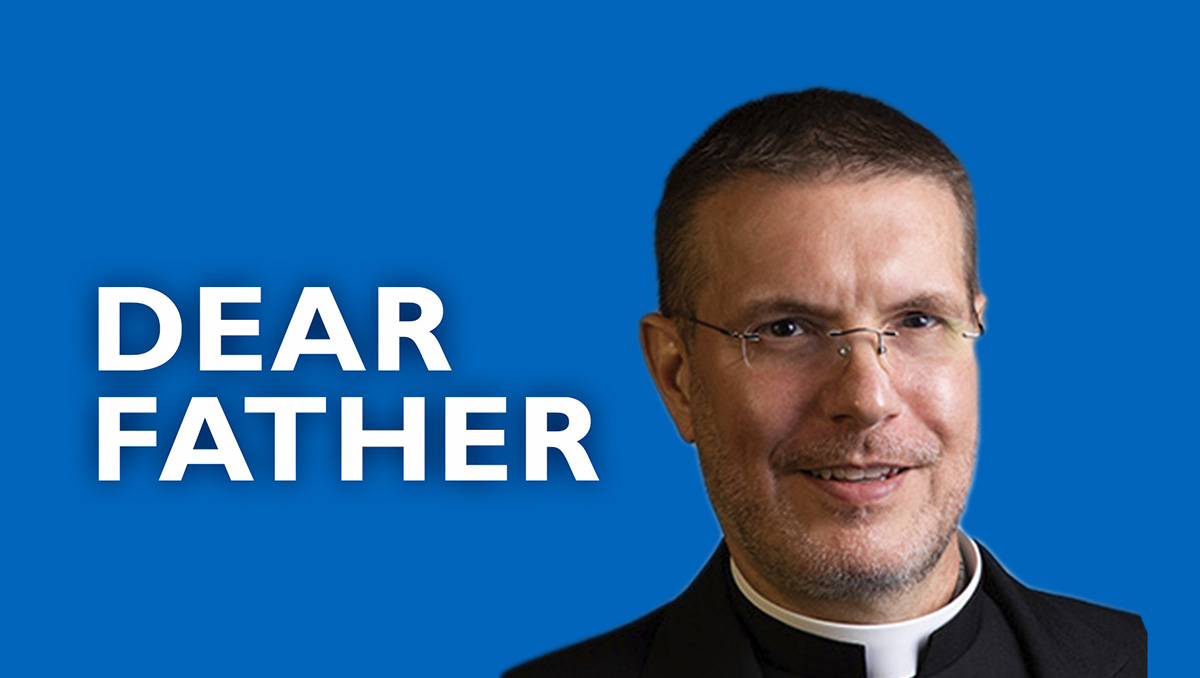SERVE THE LORD WITH GLADNESS | We need to convert the basic categories of our political discourse
Looking at how we treat vulnerable people can help us reframe categories more appropriately

Dear brothers and sisters in Christ,
One of the key themes in this week’s readings is “the conversion of basic categories.” Let me give three examples of what this means.
First: We read all week from St. Paul’s letter to the Galatians. There’s some debate over whether the letter was written between 48-50 A.D. or 54-55 A.D. Either way, it’s written very early in Church history! St. Paul is trying to help the Galatians see that we become children of Abraham — and therefore heirs to God’s promises — through faith in Jesus rather than through observance of the ceremonial law. Paul tells the story of his conversion, which came through faith, not through observance of the law. He then draws the Galatians to reflect on their experience of receiving the Holy Spirit, which also came through faith in Jesus, not through observance of the law. The letter to the Galatians shows that the conversion of basic categories has been a need in the Church from very early in our history!
Second: We hear Jesus tell the parable of the Good Samaritan (Luke 10) this week. Remember what kicks off the story: a Pharisee who, “wishing to justify himself,” asked: “and who is my neighbor?” The punch line of the parable is when Jesus turns the perspective around: “who am I neighbor to?” The parable challenges the Pharisee, and all of us, to a conversion of basic categories.
Third and last: We hear the very short episode in Luke 11 where a woman shouts to Jesus: “Blessed is the womb that carried you and the breasts at which you nursed.” There’s truth to that! But the woman is treating physical relationship as the basic category, and Jesus wants to challenge that. So He replies: “Rather, blessed are those who hear the word of God and observe it.” He’s saying two things there. The first is about the deepest reason His mother is blessed! The second is opening up that same relationship to the rest of us. In both cases, Jesus is calling for the conversion of basic categories, from the physical to the spiritual.
Here in St. Louis, we know that the need for “the conversion of basic categories” isn’t confined to the pages of the Gospel, but is also written on the pages of history. When Dred and Harriet Scott sued for freedom, they were instigating a basic conversion of categories: Was a slave a property or a person? Today we’ve codified that change in basic categories by switching — and rightly so — from speaking of “slaves” to speaking of “enslaved persons.” That conversion of categories wasn’t easy, but it was necessary.
Friends, that same need for the conversion of basic categories continues today in political discourse. Here are three of the major conversions I think we need: 1) The category of “reproductive choice” needs to be converted — what we’re talking about is how we treat small and vulnerable persons. 2) The category of “illegal immigrant” needs to be converted — what we’re talking about, again, is how we receive vulnerable persons. 3) The assumption that the fundamental purpose of politics is to secure economic prosperity needs to be converted — human dignity is the foundation of a healthy culture, not money.
The need for the conversion of basic categories is written into the Gospel, Church history and our nation’s history. It’s worth thinking about how we carry that heritage into our political and daily decisions.




